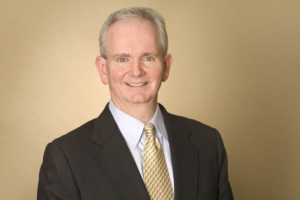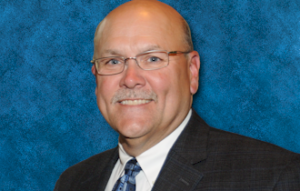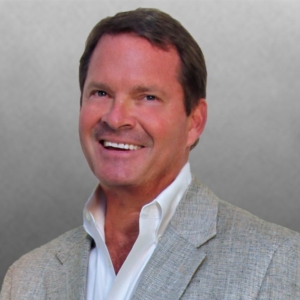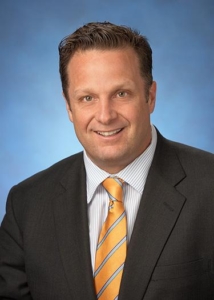By Cathie Ericson
Larry Hughes “gets it” for many reasons: he knows what it’s like to come from a “diverse” background, since he himself comes from a blue-collar upbringing – not what one might expect from the CEO of a wealth management business. Additionally, he has an ambitious 29-year-old daughter who is much like the up-and-coming women he works with around the globe. But most of all, he “gets it” because a diverse and inclusive workforce makes good business sense.
Hughes has been at BNY Mellon Wealth Management for almost 24 years, holding eight different roles over the years.
And throughout his tenure he has actively championed the business case for diversity. As committee chair of BNY Mellon’s Wealth Management diversity and inclusion committee, he saw the diversity agenda as more than just gender, race, age or religion – he believes it also encompasses social status diversity, a viewpoint he holds due to his background growing up in inner city Boston. The son of a truck driver father and waitress mother, Hughes knows what it’s like to forge his own path. He has held a job every day of his life since he was 10, including working his way through college and his MBA program.
“I value people who are self-made and come from all walks of life; in fact, I consider it an advantage that I didn’t have a privileged upbringing. I had the opportunity to learn so much working my way through school, earning practical expertise that some others may not have.”
Championing Women Formally and Informally
Although he holds an inclusive view of diversity and inclusion, Hughes nonetheless has been a tireless advocate specifically for women’s advancement across the enterprise. He is a keen supporter of a variety of development programs that cover mentoring, rotational development, engagement, internships, career development and career advancement training through an initiative called “Career Talk,” where business leads hold national conference calls that address a wide range of topics focused on skills and capabilities development.
Hughes has mentored talented women over the years both through formal programs and also through informal interactions. “Just today I met with a Wealth Management colleague who worked her way up in the organization from when I hired her as an analyst years ago. I have taken an interest in her development and offer advice whenever I can,” he says. He stresses that each mentorship opportunity teaches him as well.
In fact, that is the goal behind the firm’s Reverse Mentoring program, where he recently spent a day experiencing the challenges of an associate level employee whom he recently spent the day shadowing.
He also holds periodic lunches with a group of a dozen or so relatively entry to mid-level employees, including many women, where he offers career advice, similar to that which he has given his own daughter over the years. “It’s common-sense advice, but, people love it when I share.”
Among the tips are: “Do anything it takes to get the job done; don’t let ego get in the way; working hard still matters – work a little harder than anyone else; and try to understand other people’s objectives and find common ground.”
“One of the most rewarding parts of my job is spending time with employees who are at an early stage in their career, and are so energizing and enthusiastic in a different way than others.”
He also has been a strong advocate for flexible work arrangements. “I am always considering how we can accommodate employees and provide for an inclusive environment,” he says, noting that the issue is important for both men and women, and extends beyond child care to other family care and any case where flexibility might be needed. This is particularly important within Hughes’ business, where the competitive Wealth Management landscape keeps him keenly focused on retaining talent.
Looking Past the Surface
Hughes acknowledges that he has many opportunities to act as a sponsor in his role, because he has the luxury and obligation to step out of the day-to-day viewpoint and look at the big picture. In addition to his role as CEO for Wealth Management, he is also the Chairman for BNY Mellon New England and this provides him the opportunity to influence and help set the tone across business lines and into the broader organization.
“My role is to consider factors like ‘What are we trying to achieve?’ ‘Why is it important?’ I can take the more strategic role as I look at promoting the people who will position our business for success.”
Many times that manifests itself as identifying a candidate who might lack one particular skill but offers leadership potential for the future. Hughes then can figure out how the company can provide resources to coach them around the skill they need to develop. And, at an enterprise level, it also manifests itself in the types of programs and initiatives he supports on behalf of BNY Mellon such as diversity forums and external networking events focused on the advancement of women in the workplace.
Leading by Example
Hughes knows that having a diverse team as direct reports is also crucial. The leaders attend a training program on overcoming unconscious bias and being open-minded about candidates and opportunities. He expects his management team to own and drive the diversity and inclusion agenda throughout their businesses in support of a workplace that attracts and retains diverse talent at every level of the enterprise to support clients globally as a great place to work.
“I make sure I have people on my management team who challenge me, every day,” he says, pointing to his own team which, for example, includes a CFO who is a female African American and is also among other senior women on his management team who bring diverse viewpoints and challenge him differently.
As he considers his leadership team, he notes that across all their regions, there are more women leading markets than men. “If we don’t have a strong and capable group of women in key positions, we can’t be successful in the business,” he says. “Promoting diversity will feed on itself, as more senior women and people with diverse backgrounds become mentors to others who can then see the path ahead.”
Hughes seizes the opportunity to consider diverse candidates when considering internal mobility or external hiring. He sees it as his job to challenge his team to think differently. It’s not always about the perceived easy answer; it’s important to take the extra time and extra step to get it right. Hughes knows that thinking long-term on decisions being made today is critical.
He mentions a specific search for a leader for the largest market, the New York region. Though Hughes didn’t have a predetermined outlook, he said he needed to see a diverse set of candidates, which took time. Without this established focus at the start of the recruiting process they may not have found the senior leader whom they ultimately ended up hiring.
“That’s the kind of thinking we have to put into practice, insisting on being able to consider candidates who are women, LGBT or ethnic minorities,” he says.
Part of his role is to explain to employees why diversity and inclusion matters.
Every business is different but wealth management is very diverse,” he says. “Clients want to know the organization they are dealing with is inclusive, and that people like them are welcome and can succeed. There are communities where you need to have people who can fit in and socialize, or you’ll never be able to connect with them. Without diversity, you’ll only be successful in certain niches.”
“People readily grasp social justice, but I need them to understand the diversity business case as well.”





